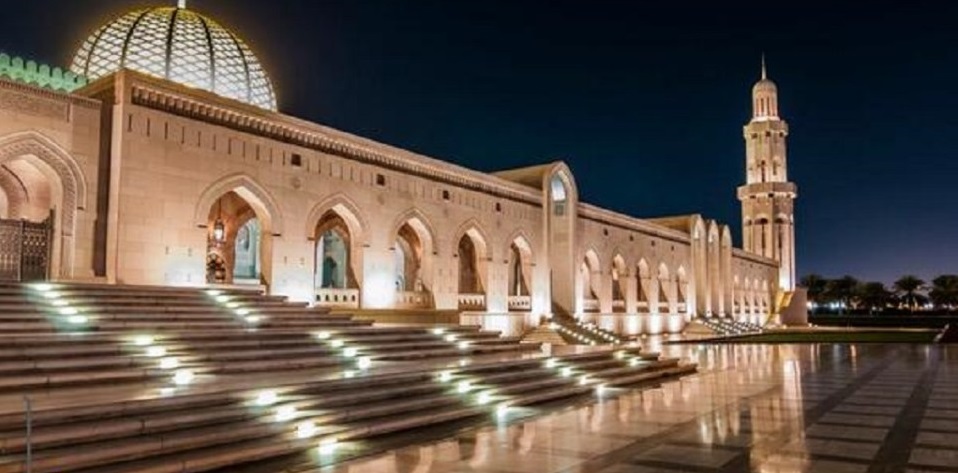

Dr Khalfan Hamed al Harrasi
Ramadhan is the most revered month of the year when Muslims (except children and the ill) are obligated to fast from sunrise to sunset abstaining from eating, drinking, smoking, sex, bad manners, sinful actions that could directly or indirectly harm oneself, others, or violate the teachings of Allah.
Equally, Ramadhan features extended prayers (Taraweeh), spiritual seclusion (Itikaaf), introspection and meditation. It is a time when appreciation of blessings (that have always been taken for granted), good deeds, empathising with and caring about the poor and the less fortunate, charity, worship and devotion are maximised.
Ramadhan 2020, however, is different as the pandemic Covid-19 has created a distinctive setting which is largely unappreciated by many of us. Understandably, Ramadhan is experienced this time with a different ‘flavour’, with the lockdown restrictions still in force. Probing deep into the issue, we would like to see a brighter side of this surreal, inevitable, tightlipped reticence inflicted upon us.
In Ramadhan, we believe that the reward from Allah for worshipping, good deeds and positive conducts are multiplied. Thus, especially in this month, Muslims perform their 5 prayers in the mosque as a group, read, recite and learn Quran as much as they can. An extended congregational prayer called Taraweeh comes right after the 5th prayer of the day, usually performed between 8:30 and 9:30 pm. These activities are immensely challenging since we are out of normality of life.
However, “with every calamity come blessings and perks, even when man cannot visibly recognise them”, as stated by Khalid Mohammed al Fahdi – Imam in Samayil and an Islamic curriculum officer at the Ministry of Education.
He continued with strong belief and optimism that “... it may be that you dislike a thing which is good for you and that you like a thing which is bad for you. Allah knows but you do not know'. (Surah Baqarah: 216). “Utilising our compassion, understanding and altruism in this time of health crisis, our health, that of family and the health of the community are paramount and must take priority”, Imam Khalid summarised.
Bearing in mind the directives of the government and considering the public health guidance to curb down the spread of the virus, we should rediscover the spirit of Ramadhan and observe and embrace these activities in a slightly different manner – fully at home!
This includes charity and donations that can be done online through reliable individuals and via trusted government websites. Fasting in Ramadhan could be difficult for people who spend hours commuting in the hot weather (which surprisingly hasn’t really started) from home to work/school. The lockdown saves us those hours of time that could be utilised to get some rest and capitalise on your worship dedication from home.
Ramadhan is, traditionally, not merely a month of fasting and worship, but a time for rekindling kinship, rejuvenating friendship and refreshing social ties. Iftar, meaning “breaking the fast”, is a communal affair, the first anticipated meal traditionally eaten with large families, relatives or friends, either in the mosque, at home or out in an open space! This is unlikely to (and must not) happen this Ramadhan. Families have to stay home and eat with their family members who have been quarantining together.
In fact, a number of post iftar activities will be done slightly different to the way they were practised in previous months of Ramadhan (with some abandoned completely). Covid-19 pandemic has forced traditional mass gatherings, celebrations, invitations, night-long socialisation, erection of Ramadhan large tents to be eliminated, and replaced by nuclear family evening activities, while taking advantage of technology to talk and chat (e.g., WhatsApp, Imo, FaceTime, Facebook Messenger, etc) or even virtually meet and socialise using video conferencing options (e.g., BigBlueBotton, Skype, Google Meet, Google Hangouts, Zoom, etc) with relatives and friends.
Ramadhan is also famous for night shopping, including purchasing and tailoring of clothes in preparation for Eid festival. Simplicity and modesty are taking over this time! Preventing the spread of the diseases through social distancing and quarantine, the bustling shopping markets, malls, and restaurants are witnessing isolation and loneliness - an opportunity for many to experience the life of those who are less fortunate in life!
Putting grumbling and moaning aside, stop worrying about the banned social gatherings, discouraged invitations and visits, restrained outings and picnics, curtailed large shared feasts, and restricted team sport activities as they are diminished to insignificance with the fact that Allah, through the test of the current health crisis (Covid-19 pandemic), has provided us with a golden opportunity (provision of abundance of free time at home) to expand our religious knowledge, to maximise praying, reading, reciting and learning Quran and coming closer to Allah.
Ramadhan 2020 for Muslims is a unique experience that many of us had hoped for, probably for a long time, as we are forced into a new daily life routine that could happen once in a lifetime allowing us free and relaxed time to get the real benefits of Ramadhan; that is the spiritual, emotional, mental, religious and behavioural benefits.
Oman Observer is now on the WhatsApp channel. Click here



